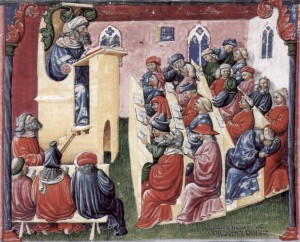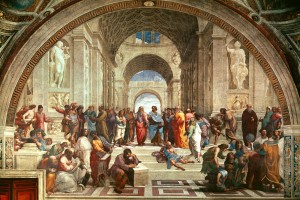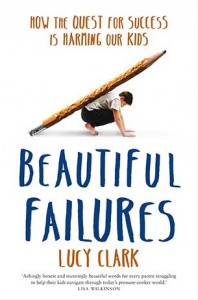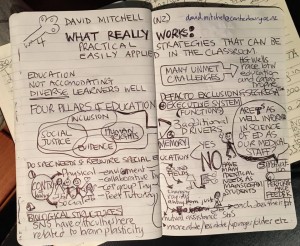
University of Bologna by Laurentius de Voltolina c.1350
Take a close look at the medieval painting above what do you notice?
Has anything changed in classrooms today? Of course yes there are no devices, I’m speaking mostly about engagement – 24:1, only 6 paying any attention, the rest seem disengaged, with more than one having a little snooze.
Now how about this one?

Raphael, School of Athens, 1509-11
Ron Canuel (CEA) opened Day 2 of proceedings giving us insights into the research done at CEA. He says that much of education has been hijacked by others and that it is indeed time we took it back. We certainly all know (I hope) that standarised tests do not lead to improvement in the educational outcomes of students, however, they do benefit real estate agents! According to Canuel – everyone wants to live in a catchment area of what is considered a ‘good’ school (and no I’m not elaborating).
Oh and the second painting above? Well, Ron mentioned something that really struck a chord with me, he said that education change should look like the Renaissance with a lot more emphasis on all subjects. School of Athens is how I imagine a classroom should be, collaboration, thinking, genius, excitement, movement, passion, reflection, ordered chaos —–> can you hear it?

26% & rising…kids who are not dealing with school recommended reading from Daffydd Wiesner-Ellix (CBD Strategic)
My next take out is about teacher quality. There is no measure for an effective teacher (Gary Marks, ACU). A teacher who may be effective in one classroom may not be in a different one let alone in another school. So where is the teaching profession heading? Tania Aspland (AITSL) argued that we could easily devise a how-to manual becoming an expert teacher the same as one might consult a how-to manual on becoming an expert golfer or tennis player. The first chapter in this manual would, of course, be OBSERVATION and the STANDARDS provide us with something against which to measure our progress. So, where can we make the greatest impact in the context of our place and time (Neil Barker, DET) in schools? Can educators, as Susannah Emery (Curtin University) asks, be ‘quest givers’ given the strong attachment our current students have towards gaming? Perhaps the Teaching & Learning Toolkit presented by Tanya Vaughan might just assist us in making the greatest impact happen in our classrooms, where they belong.
The highlight of the summit for me was meeting and sitting next to David Mitchell, Adjunct Professor (College of Educational Studies and Leadership), University of Canterbury, NZ. He delivered the final keynote address. Of course, while chatting at the table over the two days, I did all the talking about my research before it dawned on me just who he was – for those who don’t know his research is in diverse needs of students and inclusion and if you follow my blog you would know that my PhD is in special needs!!!! I spent the night after the first day of the conference reading up on Dr. Mitchell and got my hands on an online copy of his book. I have since read a number of journal articles and will hold true to emailing him to discuss his research, ask questions and gain first-hand insights as I journey through my PhD.
Dr. Mitchell also commented on my note-taking so here I place the sketchnote I completed as he spoke…now I would have added so much more but I really enjoyed just listening. I think I’ve got enough for you to get the picture of just how much wisdom this man has offered me especially as I continue my PhD. I secretly hope too, that Dr. Mitchell might read this post one day and see it for himself for I was not confident to show him on the day.

Sketchnote -Dr. Mitchell’s keynote
Question: Can Principals significantly influence learning in their schools? (Helal & Coelli, 2016)
Fact: 24% of ALL students and 40% of those who are disadvantaged are at risk of reading failure in Australian primary schools. The explicit teaching of literacy covering the BIG5 may assist (Kerry Hempenstall – Case Study presentation).
One more thing – Whilst Radmila Harding was a little apprehensive about being the very last speaker of the conference and wondered if there would be anyone left to hear her presentation I have to say it was engaging, and well I’m also going to say … FUN! There were hands-on activities and videos to make us laugh… and so it ended… happily. The take home message not only from Radmila’s presentation but I think from the whole conference:
Let’s work collaboratively to build a team that won’t fall down so all may benefit and grow in their experience and journey of learning and living.
And yes there were enough people left who enjoyed it right to the end.
End of Day 2
Thanks for reading 🙂

